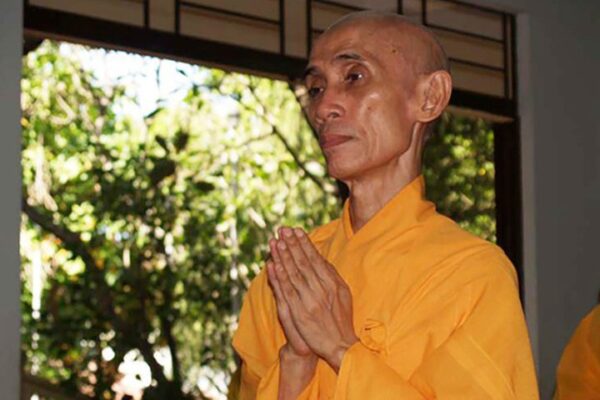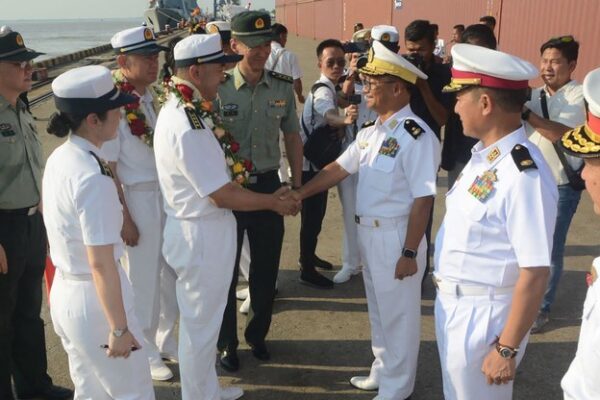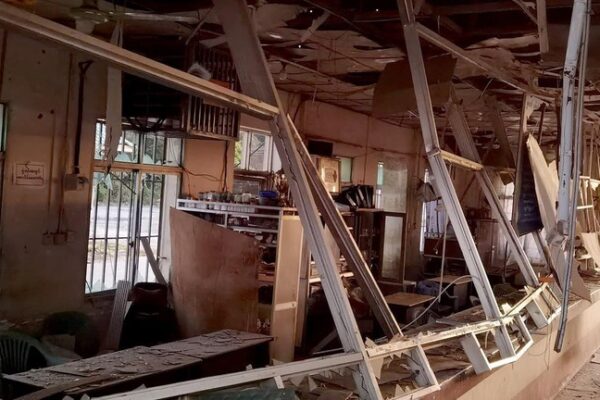Kim Jong Un’s sister hints nuke weapons are non-negotiable
Kim Jong Un’s influential sister ramped up Pyongyang’s pressure campaign against the United States, indicating that she would not put the country’s nuclear weapons in negotiations with Washington. “The sovereignty of a sovereign state can never be a subject of negotiation, and therefore, we will not sit down with the United States due to this issue,” Kim Yo Jong said in a statement, according to North Korea’s official Korean Central News Agency Thursday. North Korea has long linked its nuclear weapons program to its state identity of self-reliance – Juche ideology – as well as to matters of the nation’s sovereignty. “If the U.S.’s definition of ‘peace through strength’ means talking about dialogue upfront while wielding military power behind the curtains, then we must also be prepared for both dialogue and confrontation, especially being more thoroughly prepared for confrontation,” Kim Yo Jong said. “This is our consistent stance towards the U.S.” The influential sister of North Korea’s leader Kim Jong Un often emerges as the face of Pyongyang’s pressure campaigns, typically delivering hardline messages against the U.S. and its allies. Her appearance on Thursday, her first public statement in about four months, came just days after the U.S. ambassador traded barbs with North Korea’s representative at the U.N. Security Council on Monday. North Korean Ambassador Kim Song criticized the U.S. in New York for being hostile to his country, as he defended Pyongyang’s launch of its satellite. North Korea launched its spy satellite last week in violation of U.N. Security Council resolutions. U.S. Ambassador Linda Thomas-Greenfield, however, said that the U.S. and its allies’ joint military exercises – which Pyongyang claims as hostile – are defensive in nature, emphasizing that these exercises cannot justify the North’s violation of Security Council resolutions. She added that Washington wants sincere dialogue with Pyongyang without any preconditions. Responding to the U.S. ambassador in the U.N., Kim Yo Jong said that her logic was “weak, fallacious, and shameful,” denying the “sovereign rights of the DPRK,” referring to North Korea’s formal name. Kim Yo Jong’s remarks are essentially aimed at preventing regime backers, China and Russia, from deviating from their positions in defending North Korea on the international stage, said Yang Moo-jin, a professor at the University of North Korean Studies in Seoul who had advised South Korean governments for years. “It appears that North Korea’s ultimate strategy is to frame the U.N. Security Council as a domain dominated by what-it-calls the U.S. hegemony. This approach aims to render the Council’s functions ineffective and secure a justification for evading sanctions against North Korea,” Yang added. The sister’s remarks carry a dual message, subtly reiterating Pyongyang’s stance on “conditional” dialogue, the pundit noted. Kim Yo Jong seems to “indirectly suggest the possibility of dialogue with the United States, but only following the abandonment of what North Korea perceives as a hostile policy towards it.” Edited by Elaine Chan and Mike Firn.






